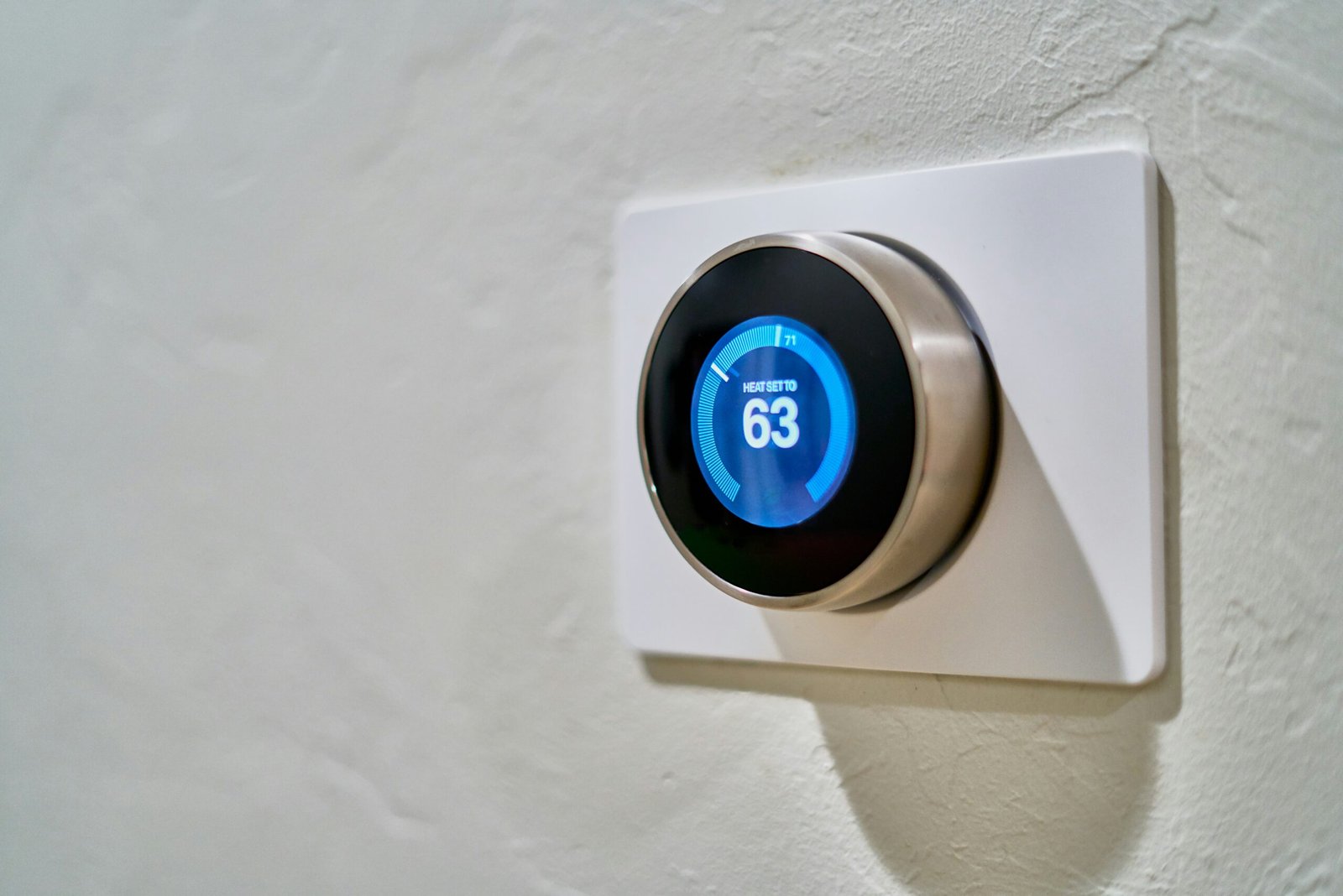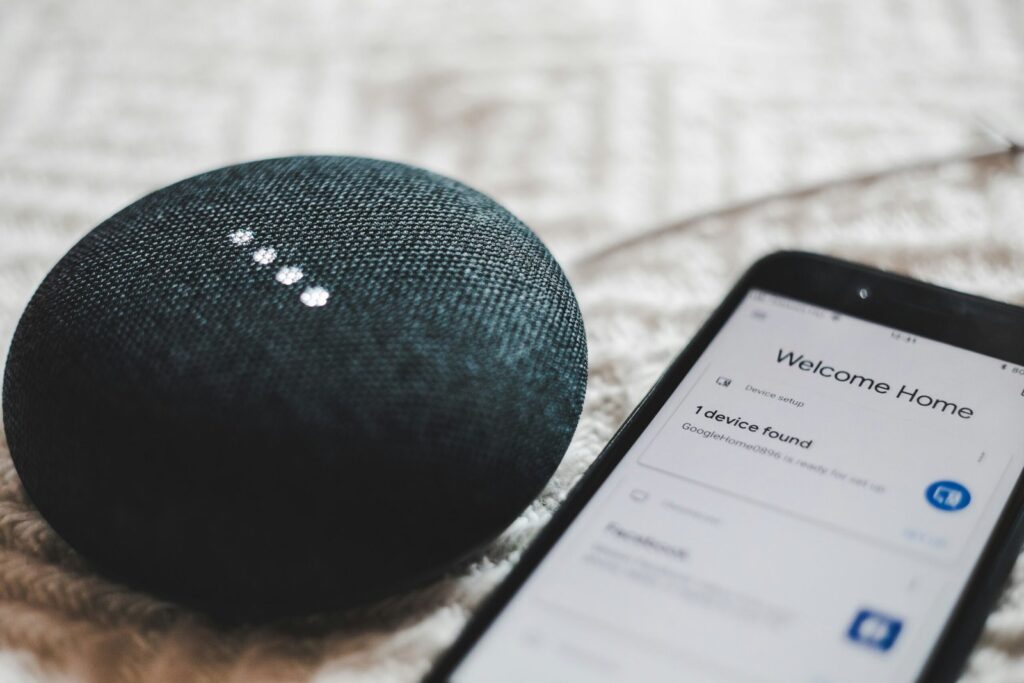
Introduction to Smart Homes and AI
Smart homes represent a transformative shift in the way people interact with their living environments, facilitated by advancements in technology, particularly artificial intelligence (AI). A smart home integrates a network of devices that communicate with one another, commonly referred to as the Internet of Things (IoT). This interconnected ecosystem allows homeowners to manage their appliances, lighting, security, and heating systems remotely through smartphones or voice-assisted technologies, enhancing their overall convenience and efficiency.
At the core of this innovation lies artificial intelligence, which plays a critical role in automating daily tasks and optimizing energy usage within the home. AI enables smart devices to learn user preferences, anticipate needs, and make informed decisions based on real-time data. For instance, AI can adjust the thermostat according to the homeowner’s schedule or recommend energy-efficient practices based on usage patterns, ultimately reducing utility costs. This technology not only streamlines household management but also contributes to the sustainability of residential environments.
The growing consumer interest in smart homes is reflected in recent market trends, indicating an increasing demand for AI-driven solutions. Homeowners are becoming more aware of the benefits of adopting these technologies, which offer enhanced security features, such as smart locks and surveillance systems, as well as increased accessibility for individuals with disabilities. Surveys and studies reveal that consumers are eager to adopt AI-driven tools that enhance both comfort and safety in their living spaces.
As we delve deeper into the future of smart homes, the implications of these technological advancements for homeowners will become clearer. By understanding the convergence of AI and IoT in smart homes, we can better appreciate their potential to fundamentally change how we live and interact with our surroundings.
Innovations in Smart Kitchen Technology
The evolution of smart kitchen technology has been significantly impacted by artificial intelligence (AI), leading to a remarkable transformation in cooking and food management. One of the key innovations in this area is the development of automated cooking assistants. These devices are designed to streamline the cooking process, allowing users to prepare meals with minimal effort. By leveraging AI, these assistants can analyze recipes, measure ingredients, and even monitor cooking times and temperatures to ensure that dishes are prepared to perfection. This level of automation not only simplifies meal preparation but also caters to the individual preferences of users, creating a more personalized culinary experience.
Another notable advancement is the emergence of smart refrigerators equipped with AI capabilities. These appliances go beyond traditional cooling functions by managing grocery inventory and reducing food waste. For instance, smart refrigerators can automatically track the contents of their shelves, alert users when items are running low, and even suggest recipes based on available ingredients. This technology encourages healthier eating habits by promoting the use of fresh ingredients and optimizing meal planning. Additionally, some smart refrigerators can connect to online grocery services, enabling users to easily replenish their supplies.

AI-powered meal-planning devices also play a crucial role in revolutionizing kitchen technology. These tools analyze dietary preferences, caloric intake, and nutritional needs to suggest meal plans tailored to individual lifestyles. By taking into consideration user preferences and nutritional guidelines, these devices facilitate the creation of balanced diets while minimizing food waste. As technology continues to evolve, smart kitchen innovations will become increasingly sophisticated, ultimately leading to more efficient cooking processes. The integration of AI in kitchen appliances not only enhances culinary experiences but also promotes a more sustainable and health-conscious approach to meal preparation.
AI-driven Climate Control and Home Automation
The advent of artificial intelligence has significantly transformed the way we live, particularly in the realm of climate control and home automation. AI-powered systems now allow smart homes to adapt automatically to the preferences and behaviors of their occupants, optimizing energy usage while enhancing comfort. One of the most prominent features of AI in climate control is predictive automation, which utilizes data analytics to learn from user habits. For instance, if a resident consistently adjusts the thermostat based on daily routines, the AI system can analyze this data and preemptively adjust temperatures, ensuring an optimal environment while reducing energy waste.
Furthermore, these AI-driven systems can monitor various environmental factors, such as humidity and air quality, allowing them to make real-time adjustments for maximum comfort. Smart thermostats equipped with AI capabilities can even detect when no one is home and adjust heating or cooling settings accordingly, providing significant energy savings. This level of intelligent management not only aids in utility cost reduction but also contributes to a more sustainable living space, reflecting a growing consumer desire for eco-friendly technology.
In addition to climate control, AI is revolutionizing home automation through voice-activated systems that seamlessly integrate with various smart devices. Homeowners can control lighting, security, and entertainment systems through simple voice commands, creating a convenient and cohesive living experience that anticipates their needs. These integrations allow for personalized settings across different environments within the home, enhancing user comfort and interaction. With proactive responses to verbal cues and automated settings tailored to individual habits, AI continues to redefine the essence of modern living.

The Future: Mainstream AI in Homes?
As we look to the future, the prospect of fully AI-driven homes becoming mainstream within the next decade is both exciting and complex. On one hand, rapid advancements in technology have dramatically accelerated the capabilities of artificial intelligence, leading to enhanced functionalities in smart home devices. From virtual assistants that learn user preferences to security systems that adapt to our lifestyles, the future of AI in homes appears promising. The integration of machine learning algorithms allows devices to operate seamlessly within a network, providing convenience and improving energy efficiency. This evolution tends to suggest that AI could soon be a ubiquitous feature in our daily lives.
However, several factors may impede the widespread adoption of AI technologies in residential settings. One of the key considerations is consumer readiness. While tech-savvy individuals may embrace the concept of AI in their homes, a significant portion of the population remains hesitant about fully integrating these systems. Concerns over privacy, data security, and the reliability of AI-powered devices could lead to resistance against adopting such technologies. Additionally, affordability plays a critical role; while costs have begun to decrease, the financial barrier for many families still remains high, potentially limiting AI’s penetration into mainstream markets.
Moreover, the societal impact of a substantial AI presence in homes cannot be overlooked. Issues such as unemployment in sectors that may become automated, or the implications of increased reliance on technology for everyday tasks, are crucial topics for discussion. As individuals adapt to a new way of living, it is essential to consider how these changes will reshape interpersonal relationships and community dynamics.
As we reflect on the unfolding trends, we invite readers to share their thoughts and predictions. Will we embrace AI-powered living spaces as essential facets of modern life, or will apprehensions hold us back? The dialogue surrounding the integration of AI in our homes is just beginning.